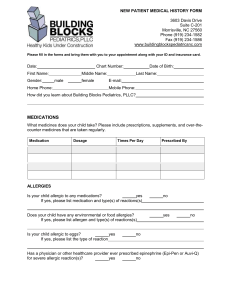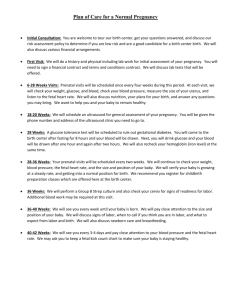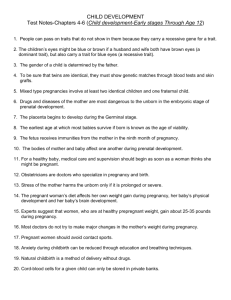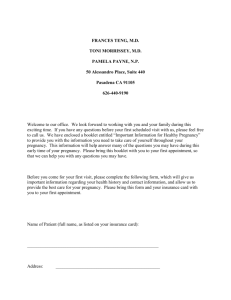NNEPQIN Obesity and Pregnancy Patient Education
advertisement
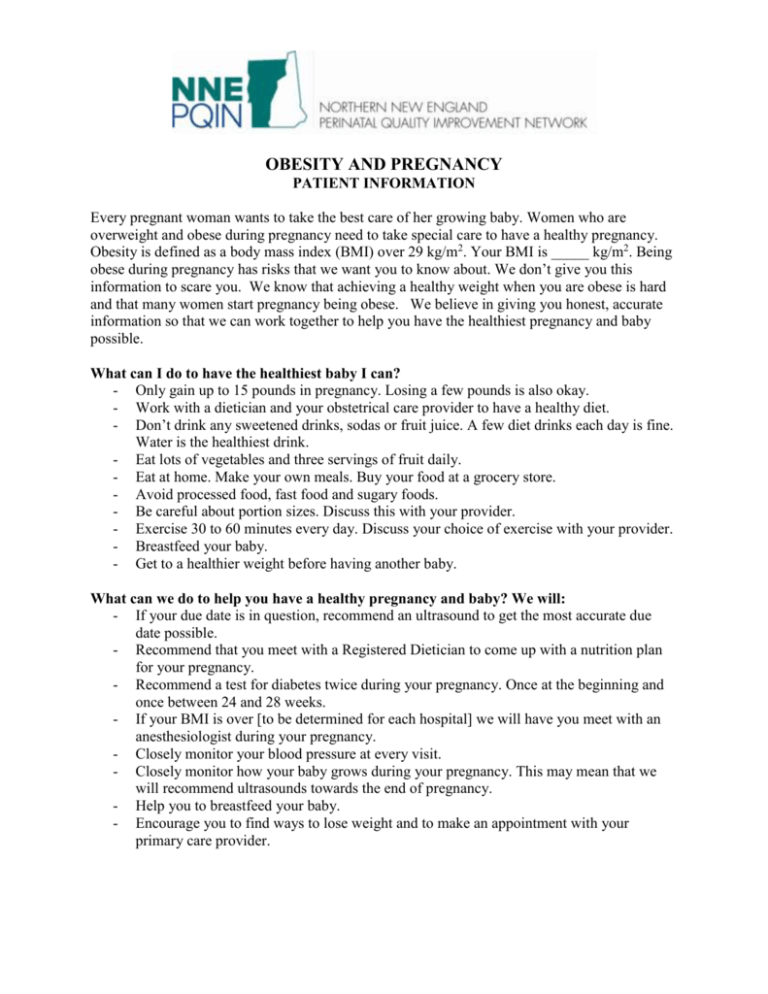
OBESITY AND PREGNANCY PATIENT INFORMATION Every pregnant woman wants to take the best care of her growing baby. Women who are overweight and obese during pregnancy need to take special care to have a healthy pregnancy. Obesity is defined as a body mass index (BMI) over 29 kg/m2. Your BMI is _____ kg/m2. Being obese during pregnancy has risks that we want you to know about. We don’t give you this information to scare you. We know that achieving a healthy weight when you are obese is hard and that many women start pregnancy being obese. We believe in giving you honest, accurate information so that we can work together to help you have the healthiest pregnancy and baby possible. What can I do to have the healthiest baby I can? - Only gain up to 15 pounds in pregnancy. Losing a few pounds is also okay. - Work with a dietician and your obstetrical care provider to have a healthy diet. - Don’t drink any sweetened drinks, sodas or fruit juice. A few diet drinks each day is fine. Water is the healthiest drink. - Eat lots of vegetables and three servings of fruit daily. - Eat at home. Make your own meals. Buy your food at a grocery store. - Avoid processed food, fast food and sugary foods. - Be careful about portion sizes. Discuss this with your provider. - Exercise 30 to 60 minutes every day. Discuss your choice of exercise with your provider. - Breastfeed your baby. - Get to a healthier weight before having another baby. What can we do to help you have a healthy pregnancy and baby? We will: - If your due date is in question, recommend an ultrasound to get the most accurate due date possible. - Recommend that you meet with a Registered Dietician to come up with a nutrition plan for your pregnancy. - Recommend a test for diabetes twice during your pregnancy. Once at the beginning and once between 24 and 28 weeks. - If your BMI is over [to be determined for each hospital] we will have you meet with an anesthesiologist during your pregnancy. - Closely monitor your blood pressure at every visit. - Closely monitor how your baby grows during your pregnancy. This may mean that we will recommend ultrasounds towards the end of pregnancy. - Help you to breastfeed your baby. - Encourage you to find ways to lose weight and to make an appointment with your primary care provider. What are the risks? A higher chance of: During pregnancy: - Miscarriage and stillbirth - Having a baby with a birth defect such as spina bifida and heart problems - Having an ultrasound that cannot see the baby well enough and that may miss a birth defect - Having gestational diabetes - High blood pressure and pre-eclampsia - Going past your due date - Having a urinary tract infection - Obstructive sleep apnea during pregnancy and postpartum - Having gall bladder disease during pregnancy - Having a blood clot in your legs or lungs During Labor: - A longer labor - An induction of labor - Having a cesarean birth and not having a successful vaginal birth after cesarean section - Difficulty monitoring your baby’s heart beat in labor - Complications from anesthesia including giving you oxygen safely - Having a large baby - The baby’s shoulders getting stuck at birth (shoulder dystocia), possibly damaging the baby If you have a cesarean delivery - Taking longer to reach the baby during the surgery even if it is an emergency - Complications with the wound - Increased blood loss and need for blood transfusion - Problems with pain control - Less likely to have a successful vaginal delivery in the future - More complications from surgery for you and the baby if it is not your first cesarean section, especially if your cesarean is done after you have been in labor After delivery: - Heavy bleeding after birth (postpartum hemorrhage) - Having a blood clot in the legs or lungs - Obstructive sleep apnea - Your baby is at risk for becoming overweight or obese o You should work with the baby’s pediatrician to set healthy weight goals starting right after birth It is very important for your health and your family’s health that you work to set up a plan to lose weight after you deliver. Your health care providers want to help you. Here are some internet links for healthy diet advice for you and your family. http://www.healthiergeneration.org/default.aspx http://www.naturallysavvy.com/pediatric-nutrition/early-efforts-can-help-prevent-childhoodobesity http://healnh.org/

